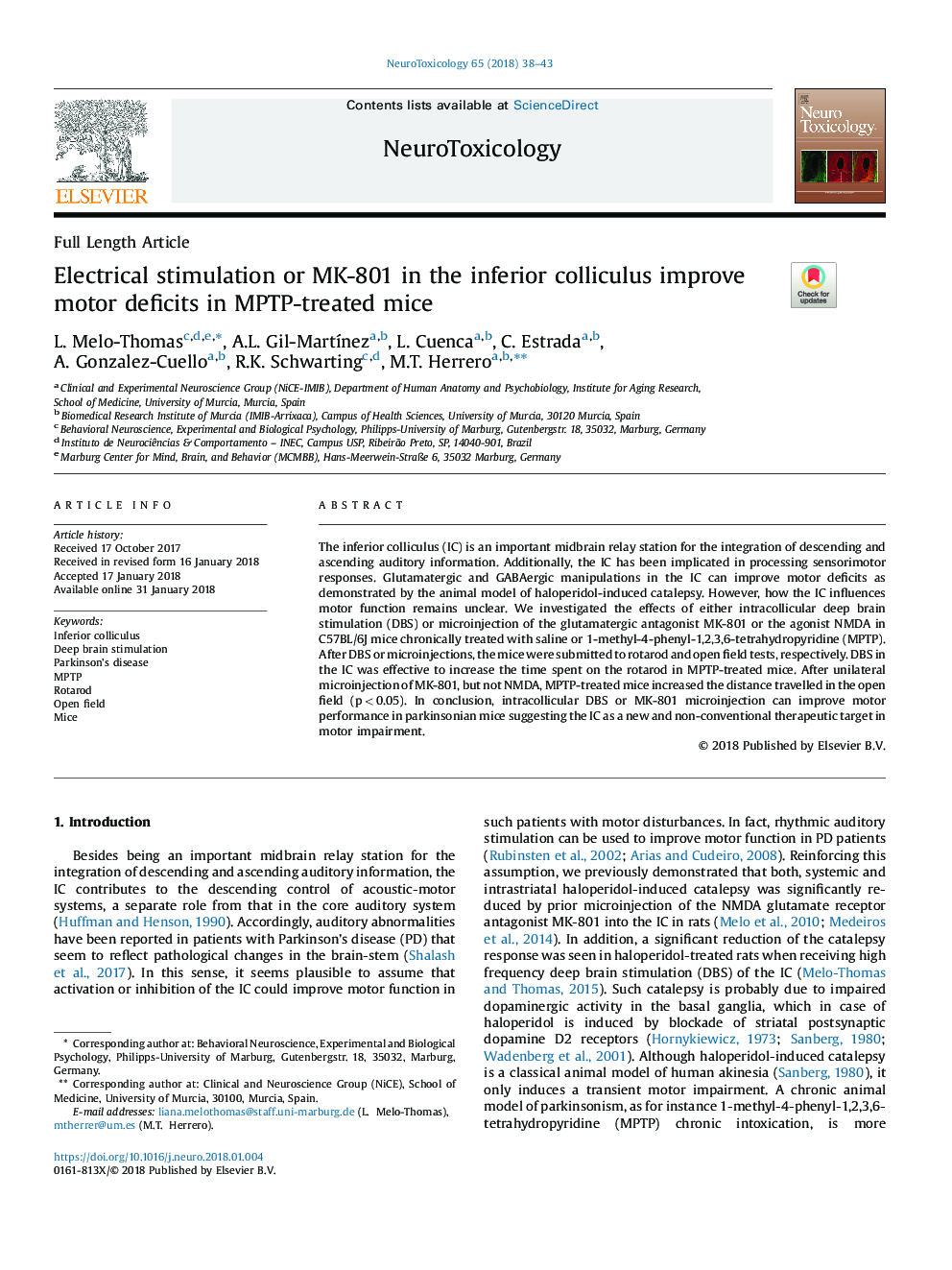| Article ID | Journal | Published Year | Pages | File Type |
|---|---|---|---|---|
| 8550194 | NeuroToxicology | 2018 | 6 Pages |
Abstract
The inferior colliculus (IC) is an important midbrain relay station for the integration of descending and ascending auditory information. Additionally, the IC has been implicated in processing sensorimotor responses. Glutamatergic and GABAergic manipulations in the IC can improve motor deficits as demonstrated by the animal model of haloperidol-induced catalepsy. However, how the IC influences motor function remains unclear. We investigated the effects of either intracollicular deep brain stimulation (DBS) or microinjection of the glutamatergic antagonist MK-801 or the agonist NMDA in C57BL/6J mice chronically treated with saline or 1-methyl-4-phenyl-1,2,3,6-tetrahydropyridine (MPTP). After DBS or microinjections, the mice were submitted to rotarod and open field tests, respectively. DBS in the IC was effective to increase the time spent on the rotarod in MPTP-treated mice. After unilateral microinjection of MK-801, but not NMDA, MPTP-treated mice increased the distance travelled in the open field (pâ¯<â¯0.05). In conclusion, intracollicular DBS or MK-801 microinjection can improve motor performance in parkinsonian mice suggesting the IC as a new and non-conventional therapeutic target in motor impairment.
Related Topics
Life Sciences
Environmental Science
Health, Toxicology and Mutagenesis
Authors
L. Melo-Thomas, A.L. Gil-MartÃnez, L. Cuenca, C. Estrada, A. Gonzalez-Cuello, R.K. Schwarting, M.T. Herrero,
